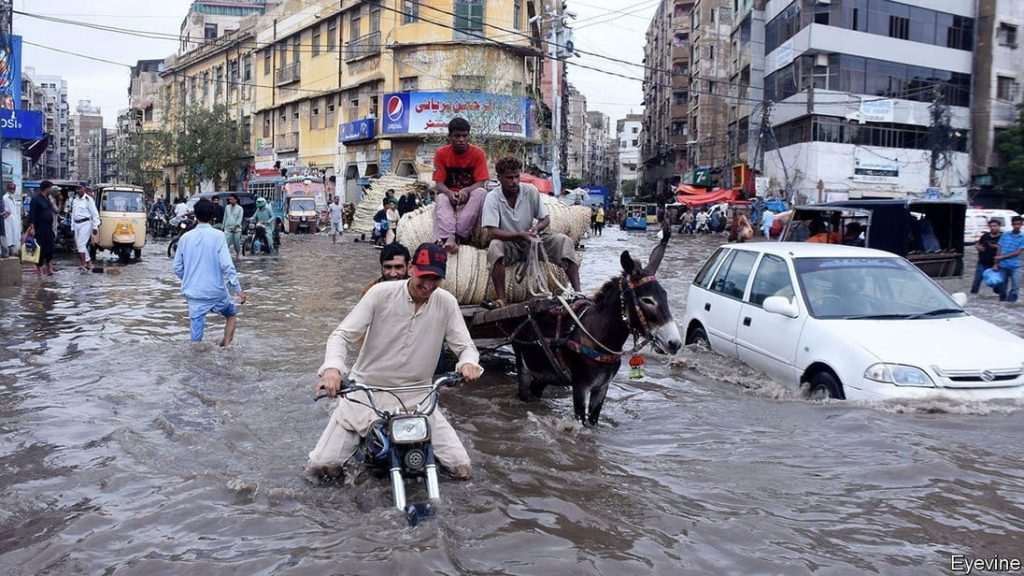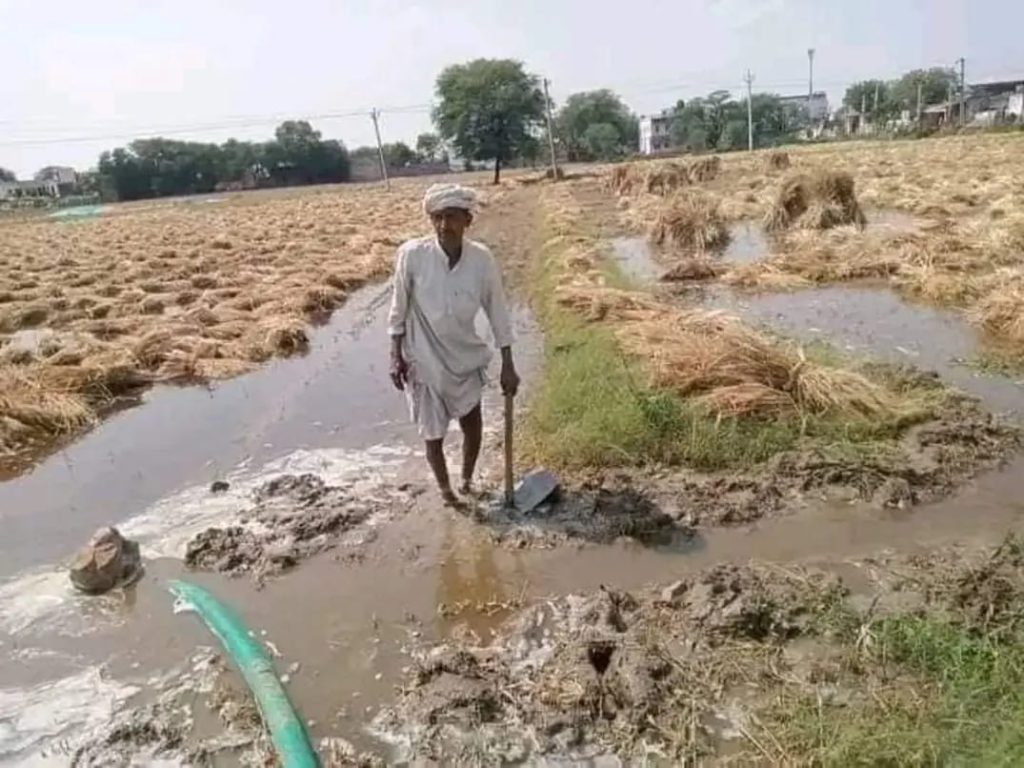
Amina Ahmad Wattoo
According to UN “Long-term changes in temperature and weather patterns are referred to as climate change. These changes may be organic, but since the 1800s, human activity has been the primary cause of climate change. This is mainly because burning fossil fuels, such as coal, oil, and gas, releases gases that trap heat.”
Pakistan’s location, topography, and socioeconomic conditions make it particularly susceptible to the effects of climate change. Temperatures have risen, rainfall patterns have changed, and extreme weather events like floods and droughts have become more frequent as a result of climate change.
These effects have had serious repercussions for the nation, including harm to infrastructure, loss of cattle and crops, eviction of entire towns, and detrimental effects on public health. Additionally, populations living downstream face a serious risk from glacial lake outburst floods as a result of the melting of the Himalayan glaciers.

Pakistan’s economy is mostly dependent on agriculture, which is susceptible to the effects of climate change such water scarcity, soil degradation, decreased agricultural yields and lowered crop production, etc. This can then result in financial losses and food insecurity.
The recent rainfall in Pakistan has had a detrimental effect on the wheat crop. The majority of the crop has been damaged due to heavy rain and hailstorms. Normally, March and April are relatively dry months in Pakistan, and farmers look forward to harvesting their wheat crops in full bloom. However, the sudden onset of rains, accompanied by hailstorms, has left many farmers devastated, with substantial losses incurred due to the damage caused by the rains.

The impact on the wheat crop has been significant, with many farmers facing reduced yields and financial losses. This is a cause for concern, as wheat is a staple crop in Pakistan and plays a critical role in ensuring food security for the country’s population. This loss will make Pakistan’s already difficult struggle to meet domestic wheat demand even more difficult.
Currently, Pakistan is facing a severe wheat flour crisis, leading to tragic deaths among individuals in the crowds that are struggling to obtain flour bags from trucks sent by the government to wheat-scarce regions of the country. Despite government efforts, the crisis persists and has yet to be resolved. The wheat flour crisis is a critical issue as it affects the daily life and livelihoods of millions of Pakistanis who rely on wheat flour for their staple food needs. It is imperative that immediate and effective action is taken to address the crisis and provide necessary relief to affected communities and urgent action is needed to support affected farmers and address the underlying issue of climate change to prevent further damage to crops in the future. Climate change is having a significant impact on the food system in Pakistan. The prices of essential commodities such as vegetables and fruits are skyrocketing due to the reduced surplus production caused by the changing climate. The erratic weather patterns are affecting crop production on farms, resulting in lower yields and an increased risk of crop failures. The shortage of crops can disrupt the supply chain, resulting in reduced availability of food, leading to food insecurity for communities who rely on these crops as their primary source of sustenance.
The adverse impact of climate change is becoming increasingly evident, and Pakistan is not immune to its effects. The agricultural sector, which is the backbone of the country’s economy, is particularly vulnerable to such erratic weather patterns that are hindering its growth, causing inflation and malnutrition in the country. It is therefore imperative that urgent steps are taken to mitigate the impact of climate change on this sector.

The devastating floods back then has forced many people to flee their homes and seek refuge elsewhere. The resulting homelessness, coupled with the profound impact of the floods on the agricultural sector, has had a significant negative impact on Pakistan’s economy. Unfortunately, the losses from these floods have yet to be fully addressed, and the region has already been hit by subsequent rainfall.
According to Internal Displacement Monitoring Centre (IDMC) report,” Most of the disaster displacement recorded globally has taken place in the Asia and Pacific region. An estimated 225.3 million internal displacements—or forced movements—were recorded during 2010−2021. Large-scale storms and floods, droughts, earthquakes, tsunamis, and volcanic eruptions keep displacing millions of people every year across this vast region, that is home to most of the world’s population. Weather-related hazards—such as monsoon rains and tropical storms—were responsible for 95% of all disaster displacements across the region during 2010−2021.”

It is crucial to acknowledge the severity of the situation and take immediate action to support those affected by these natural disasters. By providing aid and resources to those who have lost their homes and livelihoods, we can begin to mitigate the long-term effects of these floods on the region’s economy and ensure that the affected communities have the resources they need to rebuild and recover.
In conclusion, Pakistan is facing serious and far-reaching consequences as a result of climate change. The impacts of rising temperatures, changing rainfall patterns, and extreme weather events have had devastating effects on infrastructure, agriculture, and public health. The recent heavy rainfall has severely impacted the wheat crop, exacerbating the existing wheat flour crisis in the country. This crisis is a critical issue that affects the daily lives of millions of Pakistanis. It is essential to take immediate and proactive measures to address climate change’s adverse impact on agriculture to ensure food security for the people of Pakistan. If the Pakistan Meteorology Department could provide accurate weather predictions and the government could take proactive measures to address potential disasters, it would be possible to control the situation to some extent.

Additionally, the floods and subsequent displacement of people have had profound negative effects on Pakistan’s economy. It is essential to acknowledge the severity of the situation and take immediate action to support affected communities, mitigate the long-term effects of these disasters, and address the underlying issue of climate change. By working together, we can help ensure a more secure future for Pakistan and its people.
Writer is the student of MS Linguistics and literature at COMSATS University Islamabad, Email: [email protected]







